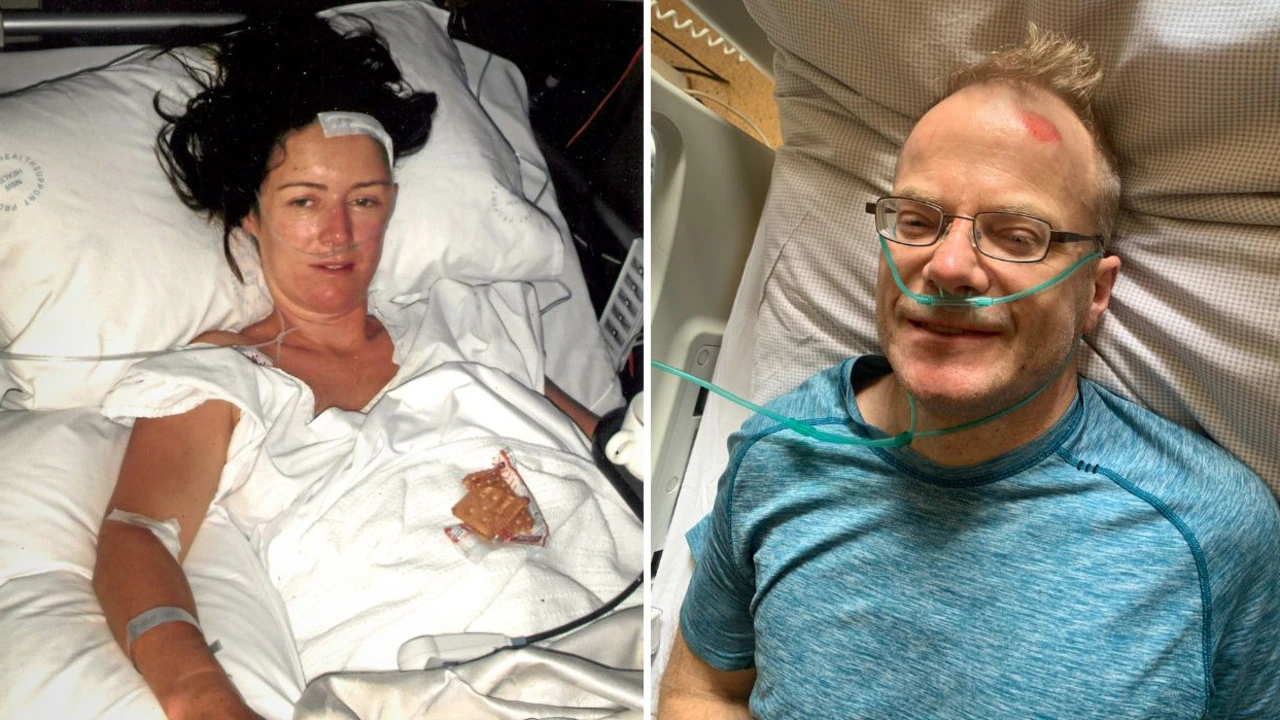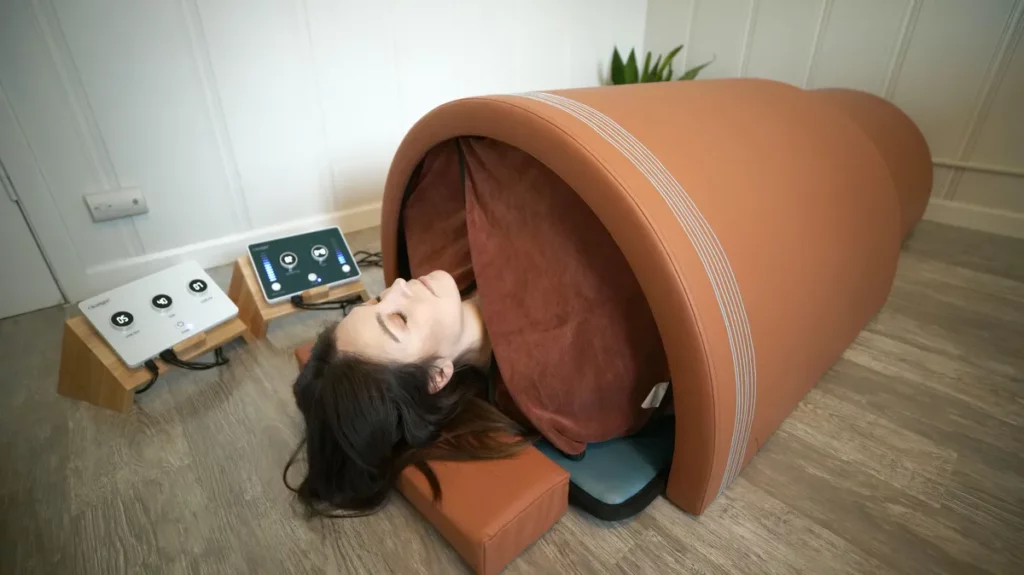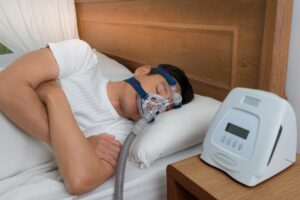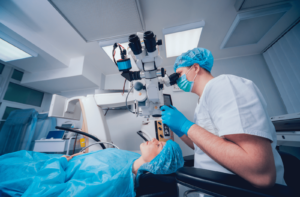
How Much Does a Sleep Test Cost in Melbourne? Full Breakdown
Sleep disorders affect millions of Australians, impacting their daily lives, health, and well-being. A proper diagnosis through sleep testing serves as the crucial first step toward effective treatment and improved quality of life.
Types of Sleep Disorders Diagnosed Through Testing
Sleep testing helps identify various conditions, including:
- Obstructive Sleep Apnoea
- Insomnia
- Narcolepsy
- Restless Leg Syndrome
- Other sleep-related breathing disorders
Medicare provides substantial support for sleep testing Melbourne through the Medicare Benefits Schedule (MBS). Level 2 home sleep studies receive Medicare funding when patients meet specific eligibility criteria:
Sleep Testing Options Available in Melbourne
Melbourne residents have access to various sleep testing options, including:
- Home-based studies for convenience
- Comprehensive overnight assessments in specialised sleep clinics
These diagnostic tools play a vital role in understanding and addressing sleep disorders.

Importance of Understanding Sleep Testing Costs
Understanding the costs associated with sleep testing proves essential for patients seeking diagnosis and treatment. The financial aspect often influences decisions about pursuing medical help, particularly when considering factors such as:
- Medicare rebates
- Private health insurance coverage
- Out-of-pocket expenses
- Additional consultation fees
Cost Range for Sleep Studies in Melbourne
The cost of sleep studies in Melbourne varies significantly based on the type of test, location, and individual circumstances. Here’s a general overview:
- Home sleep tests typically range from $150-$265 after Medicare rebates.
- Hospital-based studies may incur higher costs depending on insurance coverage.
This comprehensive guide breaks down the costs, options, and considerations for sleep testing in Melbourne, helping patients make informed decisions about their sleep health journey. For those considering alternatives, similar sleep study options are available in Adelaide and Canberra, offering more flexibility in terms of location and accessibility.
Understanding Sleep Tests
Sleep testing in Australia offers two primary diagnostic pathways: home-based studies and hospital/clinic-based polysomnography. Each method serves specific diagnostic purposes and suits different patient needs.
Home Sleep Studies
- Portable monitoring devices track breathing patterns, oxygen levels, and heart rate
- Patients sleep in their own bed while wearing the testing equipment
- Ideal for initial screening and straightforward cases
- Less comprehensive but more convenient and cost-effective
Hospital/Clinic-Based Polysomnography
- Comprehensive overnight study in a specialised sleep laboratory
- Advanced monitoring of brain waves, eye movements, muscle activity
- Direct observation by trained sleep technicians
- Suitable for complex cases or when detailed analysis is required
Both testing methods effectively detect obstructive sleep apnea through:
- Measurement of breathing interruptions
- Blood oxygen saturation monitoring
- Heart rate variability tracking
- Body position and movement analysis

The diagnostic equipment records these parameters throughout the night, creating detailed data patterns. Sleep specialists analyse these patterns to identify sleep disorders, particularly focusing on:
- Frequency of breathing pauses
- Severity of oxygen level drops
- Impact on sleep architecture
- Correlation with symptoms
The choice between home and laboratory testing depends on individual circumstances, suspected conditions, and medical recommendations from healthcare providers. For those considering a sleep study in Melbourne, Brisbane, Sydney, or Hobart, these factors will play a crucial role in determining the most suitable option.
Home Sleep Studies in Melbourne
Home sleep studies, such as those offered by Sleep Solutions Australia, provide a convenient diagnostic solution for sleep disorders in the comfort of a patient’s own bedroom. These portable tests use sophisticated monitoring equipment that patients can set up themselves following clear instructions.
The Testing Process:
- A small recording device attaches to the chest
- Sensors monitor breathing patterns, heart rate, and blood oxygen levels
- Data collection occurs throughout one night of sleep
- Equipment return and analysis by sleep specialists follows the next day
Cost Breakdown for Home Sleep Studies:
- Initial cost: $400-$500
- Medicare rebate: approximately $235
- Final out-of-pocket expense: $150-$265
Key Benefits of Home Testing:
- Natural sleep environment
- No overnight hospital stay required
- Reduced anxiety during testing
- Flexible scheduling options
- Same-day equipment collection and return
Air Liquide Healthcare and affiliated providers across Melbourne deliver these home-based sleep studies through their network of sleep clinics. The testing equipment meets Australian standards for diagnostic accuracy, providing reliable results for conditions such as sleep apnoea.
Private health insurance may offer additional rebates, potentially reducing out-of-pocket expenses further. Patients should check their specific policy details for coverage information.
Hospital or Clinic-Based Overnight Sleep Studies (Polysomnography) in Melbourne
Hospital-based polysomnography represents the gold standard in sleep testing, providing comprehensive monitoring through sophisticated medical equipment. This intensive overnight study takes place in a dedicated sleep laboratory under the supervision of trained sleep technicians.
What Does Polysomnography Monitor?
During polysomnography, patients are connected to multiple sensors that monitor:
- Brain activity (EEG)
- Eye movements
- Heart rate and rhythm
- Blood oxygen levels
- Breathing patterns
- Body movements
- Muscle activity
Costs of Hospital Sleep Studies in Melbourne
The base cost for hospital sleep studies in Melbourne ranges from $500 to $1,500, with variations depending on the facility and specific tests required. Private health insurance can significantly reduce out-of-pocket expenses, bringing costs down to $200-$400 for insured patients.
Accessing Hospital-Based Sleep Studies
Accessing hospital-based sleep studies requires:
- GP referral to a sleep specialist
- Initial specialist consultation ($150-$300)
- Sleep specialist referral for the study
Waiting Times for Sleep Studies
Private hospitals typically offer shorter waiting times compared to public facilities, though costs are higher. Public hospital sleep labs often have waiting periods of 3-6 months but provide services at reduced rates through Medicare bulk billing arrangements.
Medicare Rebates for Polysomnography
Medicare rebates cover approximately 75% of the scheduled fee for polysomnography when specific clinical criteria are met. Additional costs may apply for specialised testing or extended monitoring requirements.
Medicare and Insurance Coverage for Sleep Tests in Melbourne
- Suspected sleep disorder diagnosis from a qualified medical practitioner
- Direct referral from a GP or specialist
- No previous Medicare-funded sleep study within the past 12 months
The Medicare rebate significantly reduces the financial burden of sleep testing. A typical home sleep study costs between $400-$600, with Medicare covering approximately 75% of the fee. This brings the out-of-pocket expense to approximately $265 for eligible patients.
Private health insurance offers additional coverage options:
- Hospital Cover: Covers in-laboratory sleep studies
- Extras Cover: May include CPAP equipment and accessories
- Combined Coverage: Some policies provide both diagnostic and treatment support
Insurance policies vary in their level of coverage for sleep-related services. Key factors affecting coverage include:
- Waiting periods for specific treatments
- Annual claim limits
- Policy exclusions
- Provider agreements with specific sleep clinics
Private health insurance members should contact their provider to understand their specific coverage entitlements and potential gap payments for sleep-related services.
Additional Costs Associated with Sleep Testing in Melbourne
The base cost of sleep testing represents just one component of the total expenses patients might encounter during their diagnostic journey. Several additional charges can impact the final cost:
1. Initial GP Consultation
- Bulk-billing practices: $0 out-of-pocket
- Private practices: $40-$80 gap payment
2. Sleep Specialist Consultation
- Initial consultation: $150-$300
- Medicare rebate typically covers 75% of the scheduled fee
- Gap payments range from $80-$200
3. Follow-up Requirements
- Results interpretation appointment: $80-$150
- Treatment planning session: $100-$200
- Regular monitoring visits: $60-$120 per session
4. Additional Diagnostic Tests
- Blood oxygen level testing: $30-$50
- Multiple Sleep Latency Testing (MSLT): $400-$800
- Maintenance of Wakefulness Test: $400-$800
5. Report and Documentation
- Administrative fees: $20-$50
- Medical records transfer: $15-$30
- Written reports for other healthcare providers: $30-$60
Private health insurance may cover portions of these additional expenses, depending on the policy level and specific fund. Patients with complex sleep disorders might require multiple specialist consultations or supplementary tests, increasing the total cost of diagnosis.
Treatment Pathways Post-Diagnosis and Their Costs in Melbourne
The severity of sleep apnea determines the most appropriate treatment pathway and associated costs. Treatment options range from simple oral devices to advanced therapeutic equipment.
Mandibular Advancement Splints (MAS)
- Suitable for mild to moderate sleep apnea
- Custom-fitted by dental specialists
- Price range: $1,500 – $2,500
- Medicare does not cover MAS devices
- Private health insurance may provide partial coverage
- Replacement needed every 2-3 years
CPAP Therapy
Recommended for moderate to severe cases, CPAP therapy involves the use of a continuous positive airway pressure machine. The costs associated with CPAP therapy include:
- Basic CPAP machine: $800 – $1,500
- Premium auto-adjusting models: $1,800 – $3,000
- Masks: $150 – $400
- Accessories (filters, tubing): $50 – $200 annually
Alternative Treatment Options
In addition to MAS and CPAP therapy, there are alternative treatment options available for sleep apnea:
- Positional therapy devices: $200 – $500
- Surgical interventions: $5,000 – $15,000
- Weight management programs: Variable costs
Private health insurance coverage varies significantly between providers and policy levels. Some insurers offer specific sleep apnea treatment packages that can substantially reduce out-of-pocket expenses for both MAS devices and CPAP equipment.
Regular maintenance costs should be factored into the long-term treatment budget, including replacement masks, filters, and periodic equipment servicing.
Choosing the Right Sleep Test Option in Melbourne
Selecting between home-based and hospital sleep studies requires careful consideration of several key factors:
Severity of Symptoms
- Mild symptoms might suit home testing
- Complex or severe cases benefit from comprehensive hospital monitoring
Medical History
- Pre-existing conditions
- Multiple health concerns
- Previous sleep study results
Lifestyle Considerations
- Work schedules
- Family responsibilities
- Transport accessibility to testing facilities
Cost Factors
- Private health insurance coverage
- Medicare eligibility
- Budget constraints
Technical Requirements
- Home studies offer basic monitoring
- Hospital tests provide detailed brain activity analysis
- Additional parameters measured in clinical settings
Personal Comfort
- Natural sleep environment at home
- Professional supervision in hospitals
- Anxiety levels in different settings
The choice between affordable sleep study options depends on individual circumstances. Home sleep tests suit patients with straightforward symptoms and limited mobility. Hospital-based polysomnography provides comprehensive data collection essential for complex cases requiring detailed analysis.
Sleep specialists can assess personal circumstances and recommend the most appropriate testing method based on medical needs, lifestyle factors, and financial considerations.
Conclusion
Sleep test costs in Melbourne range from $150 to $265 for home studies after Medicare rebates, while hospital-based polysomnography costs vary based on insurance coverage. The right choice depends on individual circumstances, medical needs, and financial considerations.
Consulting healthcare providers remains essential for:
- Accurate assessment of sleep disorder symptoms
- Appropriate test recommendations
- Medicare eligibility verification
- Private health insurance benefits clarification
- Treatment pathway planning
Sleep disorders impact daily life significantly, making proper diagnosis crucial for effective treatment. Melbourne residents can access various sleep testing options through providers like SNORE Australia, Healthy Sleep Solutions, and Sleep Disorder Australia. These providers work closely with Medicare and private health insurers to maximise affordability.
Taking the first step toward diagnosis enables appropriate treatment selection, leading to improved sleep quality and better health outcomes. Speaking with a GP about sleep concerns creates a clear path to affordable, effective sleep testing solutions.


